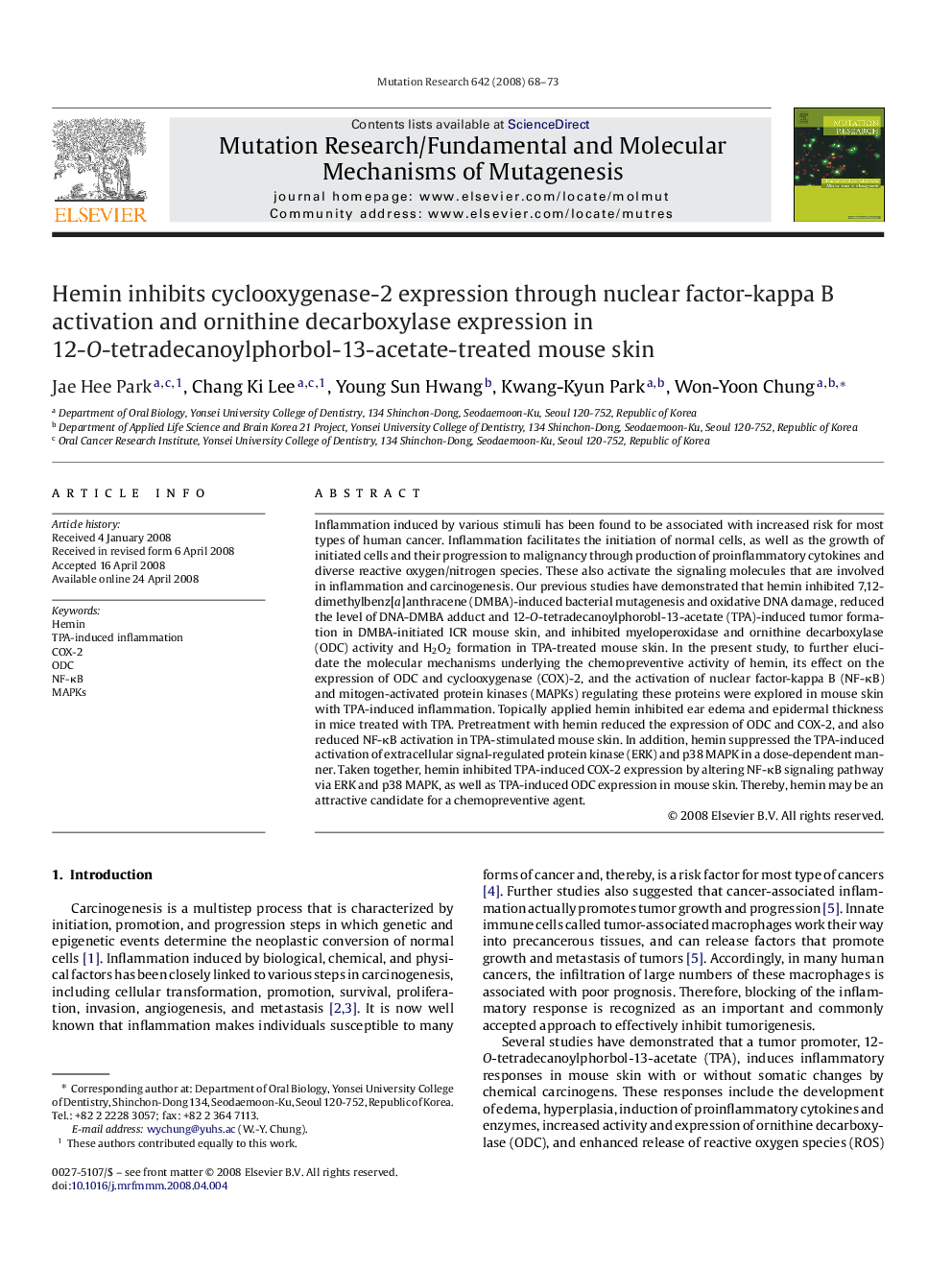| Article ID | Journal | Published Year | Pages | File Type |
|---|---|---|---|---|
| 2147141 | Mutation Research/Fundamental and Molecular Mechanisms of Mutagenesis | 2008 | 6 Pages |
Abstract
Inflammation induced by various stimuli has been found to be associated with increased risk for most types of human cancer. Inflammation facilitates the initiation of normal cells, as well as the growth of initiated cells and their progression to malignancy through production of proinflammatory cytokines and diverse reactive oxygen/nitrogen species. These also activate the signaling molecules that are involved in inflammation and carcinogenesis. Our previous studies have demonstrated that hemin inhibited 7,12-dimethylbenz[a]anthracene (DMBA)-induced bacterial mutagenesis and oxidative DNA damage, reduced the level of DNA-DMBA adduct and 12-O-tetradecanoylphorobl-13-acetate (TPA)-induced tumor formation in DMBA-initiated ICR mouse skin, and inhibited myeloperoxidase and ornithine decarboxylase (ODC) activity and H2O2 formation in TPA-treated mouse skin. In the present study, to further elucidate the molecular mechanisms underlying the chemopreventive activity of hemin, its effect on the expression of ODC and cyclooxygenase (COX)-2, and the activation of nuclear factor-kappa B (NF-κB) and mitogen-activated protein kinases (MAPKs) regulating these proteins were explored in mouse skin with TPA-induced inflammation. Topically applied hemin inhibited ear edema and epidermal thickness in mice treated with TPA. Pretreatment with hemin reduced the expression of ODC and COX-2, and also reduced NF-κB activation in TPA-stimulated mouse skin. In addition, hemin suppressed the TPA-induced activation of extracellular signal-regulated protein kinase (ERK) and p38 MAPK in a dose-dependent manner. Taken together, hemin inhibited TPA-induced COX-2 expression by altering NF-κB signaling pathway via ERK and p38 MAPK, as well as TPA-induced ODC expression in mouse skin. Thereby, hemin may be an attractive candidate for a chemopreventive agent.
Related Topics
Life Sciences
Biochemistry, Genetics and Molecular Biology
Cancer Research
Authors
Jae Hee Park, Chang Ki Lee, Young Sun Hwang, Kwang-Kyun Park, Won-Yoon Chung,
